
Bolands: The Tranquil Escape on Antigua's West Coast
Nestled on the west coast of Antigua, Bolands is a charming village that offers a serene escape from the hustle and bustle of more crowded tourist spots. Known for its friendly locals and stunning natural beauty, Bolands provides a perfect blend of relaxation and adventure for visitors. Imagine waking up to the sight of turquoise waters and white sandy beaches. Bolands is home to some of the most picturesque beaches in Antigua, where you can spend your days sunbathing, snorkeling, or simply enjoying a leisurely stroll along the shore. The calm and clear waters are perfect for swimming and exploring marine life. Beyond the beaches, Bolands offers a glimpse into the local culture and way of life. Visit the local markets to experience the vibrant energy and sample fresh, tropical fruits. Don't miss out on trying the local cuisine, which features a delicious mix of Caribbean flavors. Seafood lovers will be in heaven with the variety of fresh catches available daily. For those who seek a bit more adventure, Bolands is a great base for exploring the rest of Antigua. Take a short drive to Jolly Harbour, where you can find an array of watersports, golfing, and dining options. Or, venture further to discover historical sites such as Nelson's Dockyard and Shirley Heights, which offer stunning views and a rich history. Whether you are looking to unwind on a beautiful beach, immerse yourself in local culture, or embark on exciting excursions, Bolands has something to offer every traveler. Its laid-back atmosphere and breathtaking scenery make it a must-visit destination in Antigua and Barbuda.
Local tips in Bolands
- Visit the local markets early in the morning to get the freshest produce and seafood.
- Bring cash, as some local vendors and smaller establishments may not accept credit cards.
- Rent a car if you plan to explore other parts of the island, as public transport can be limited.
- Don't miss a sunset at one of the beaches; the views are truly spectacular.
- Try the local dish 'ducana', a sweet potato dumpling often served with saltfish.
Bolands: The Tranquil Escape on Antigua's West Coast
Nestled on the west coast of Antigua, Bolands is a charming village that offers a serene escape from the hustle and bustle of more crowded tourist spots. Known for its friendly locals and stunning natural beauty, Bolands provides a perfect blend of relaxation and adventure for visitors. Imagine waking up to the sight of turquoise waters and white sandy beaches. Bolands is home to some of the most picturesque beaches in Antigua, where you can spend your days sunbathing, snorkeling, or simply enjoying a leisurely stroll along the shore. The calm and clear waters are perfect for swimming and exploring marine life. Beyond the beaches, Bolands offers a glimpse into the local culture and way of life. Visit the local markets to experience the vibrant energy and sample fresh, tropical fruits. Don't miss out on trying the local cuisine, which features a delicious mix of Caribbean flavors. Seafood lovers will be in heaven with the variety of fresh catches available daily. For those who seek a bit more adventure, Bolands is a great base for exploring the rest of Antigua. Take a short drive to Jolly Harbour, where you can find an array of watersports, golfing, and dining options. Or, venture further to discover historical sites such as Nelson's Dockyard and Shirley Heights, which offer stunning views and a rich history. Whether you are looking to unwind on a beautiful beach, immerse yourself in local culture, or embark on exciting excursions, Bolands has something to offer every traveler. Its laid-back atmosphere and breathtaking scenery make it a must-visit destination in Antigua and Barbuda.
When is the best time to go to Bolands?
Iconic landmarks you can’t miss
Heritage Quay Complex
Discover Heritage Quay Complex: St. John's premier shopping and dining destination, blending local culture and Caribbean hospitality in a vibrant setting.
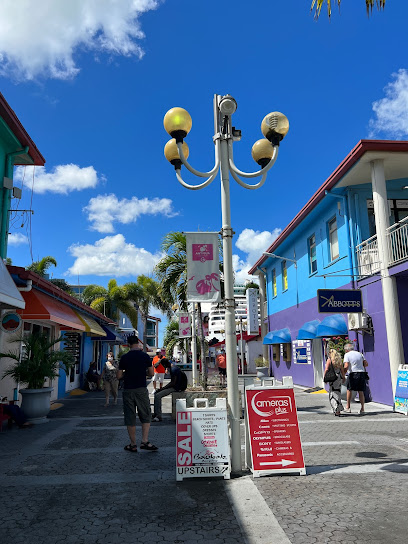
Nelson's Dockyard
Experience Antigua's maritime history at Nelson's Dockyard, a UNESCO World Heritage site featuring museums, shops, and stunning coastal views.
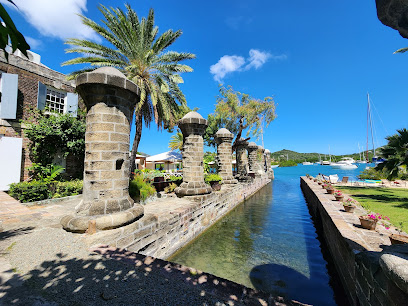
Redcliffe Quay
Discover historic charm and unique shopping at Redcliffe Quay, a beautifully restored waterfront marketplace in St. John's, Antigua.
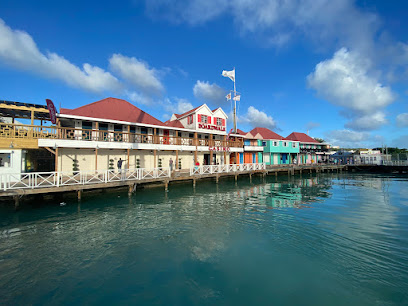
Shirley Heights Lookout
Experience Antigua's best views from Shirley Heights Lookout: history, stunning sunsets, Caribbean vibes, and unforgettable Sunday parties.
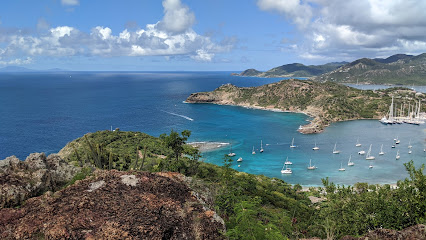
Devil's Bridge National Park
Discover Antigua's dramatic coastline at Devil's Bridge National Park, a natural wonder shaped by the Atlantic and steeped in history.
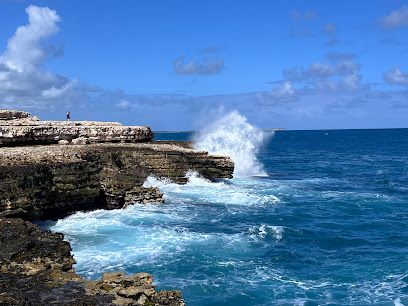
Al Porto
Experience authentic Italian cuisine at Al Porto, a charming restaurant in Jolly Harbour that offers a unique dining experience with stunning views.
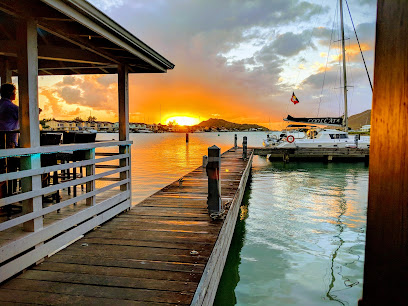
Sheer Rocks
Cliffside restaurant and bar offering Mediterranean cuisine with stunning Caribbean Sea views, perfect for tapas lunches and romantic sunset dinners.
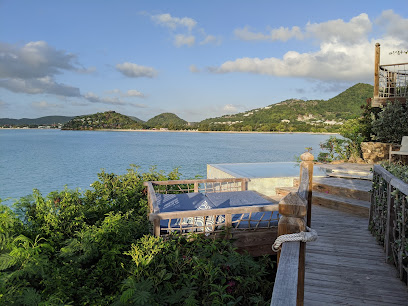
The Nest -Beach Bar, Antigua
Experience the vibrant flavors and relaxing atmosphere at The Nest Beach Bar, Antigua’s top destination for grilled delights and stunning ocean views.
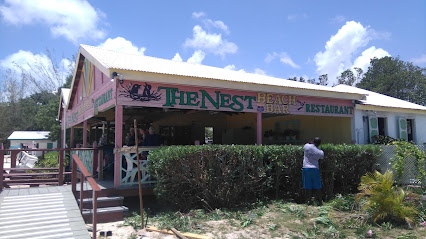
VC Bird Monument
Explore the VC Bird Monument, a stunning tribute to Antigua's first Prime Minister, surrounded by lush gardens and rich history.
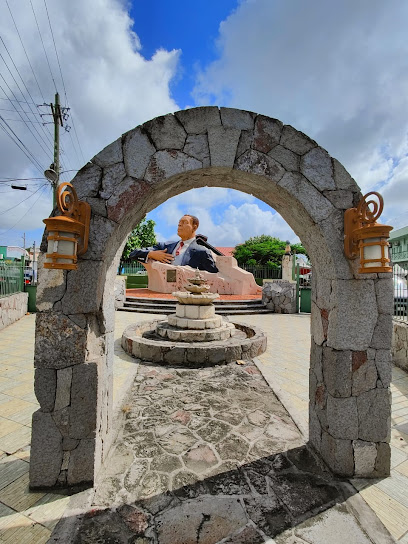
Museum of Antigua and Barbuda
Explore the captivating history of Antigua and Barbuda at the Museum, where culture and heritage come alive through engaging exhibits.
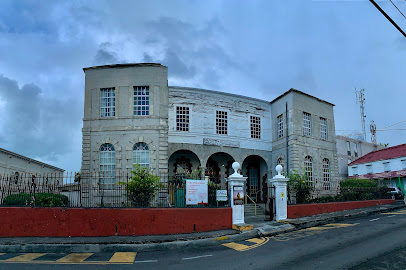
Dow's Hill Interpretation Centre
Explore Antigua's maritime heritage at Dow's Hill Interpretation Centre within Nelson's Dockyard National Park, where history meets breathtaking views.
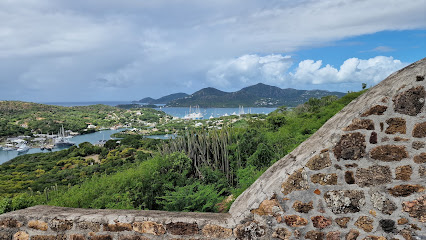
Darkwood Beach Bar and Restaurant
Experience authentic Antiguan flavors and breathtaking Caribbean views at Darkwood Beach Bar and Restaurant. Your perfect beach escape awaits!
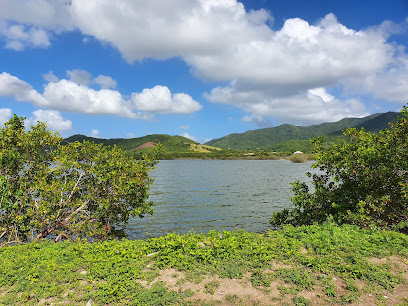
Fort James
Explore Fort James, a historical landmark in St. John's, Antigua, where colonial history meets stunning coastal views.
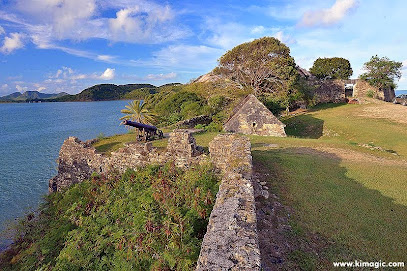
Miracles of the Caribbean Restaurant and Bar
Experience authentic Caribbean flavors, fresh seafood, and vibrant island culture at Miracles of the Caribbean in Bolands, Antigua.
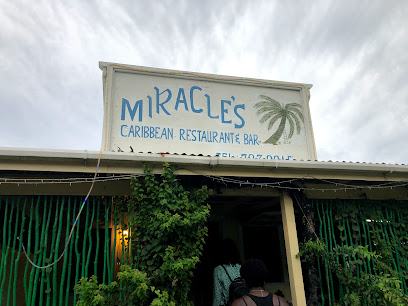
Betty's Hope Historic Sugar Plantation
Discover the captivating history of Betty's Hope Historic Sugar Plantation, a significant relic of Antigua's sugar industry amidst stunning natural beauty.
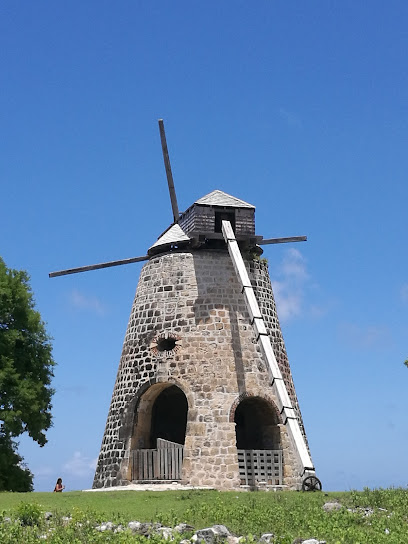
Unmissable attractions to see
Nelson's Dockyard
Explore a UNESCO World Heritage Site: Nelson's Dockyard, the only continuously working Georgian-era dockyard in the world, offering history and stunning marina views.
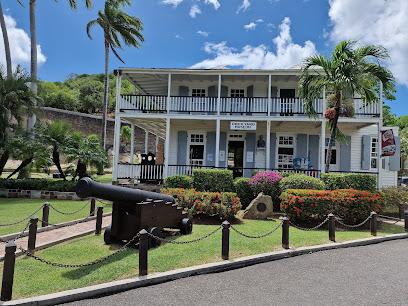
Stingray City Antigua
Swim with gentle stingrays in their natural habitat at Stingray City Antigua. An unforgettable marine adventure for all ages!
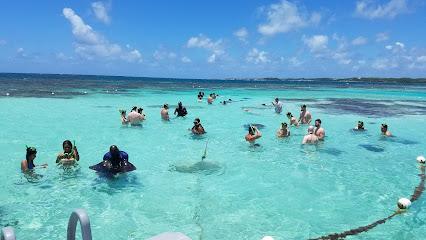
Devil's Bridge National Park
Witness nature's power at Devil's Bridge National Park in Antigua, a dramatic coastal landmark sculpted by the Atlantic Ocean.
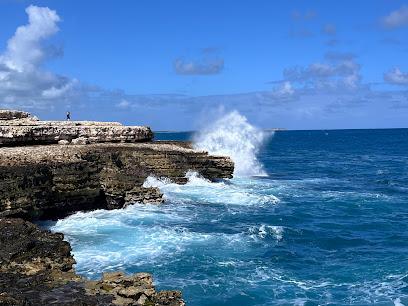
Sir Vivian Richards Stadium
Experience the excitement of cricket and vibrant Antiguan culture at the iconic Sir Vivian Richards Stadium, a must-visit for sports enthusiasts.
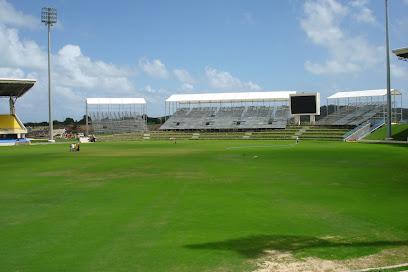
Royalton Antigua, An Autograph Collection All-Inclusive Resort
Experience Antigua in all-inclusive luxury: private beach, gourmet dining, and stunning views await at Royalton Antigua in Five Islands Village.

Galleon Beach
Discover tranquility and natural beauty at Galleon Beach, Antigua: Calm waters, snorkeling, and historic trails await in this Caribbean paradise.
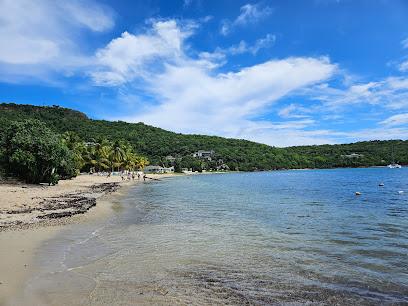
Pigeon Point Beach
Discover tranquility at Pigeon Point Beach in Antigua: calm waters, soft sands, and stunning harbor views await your visit.
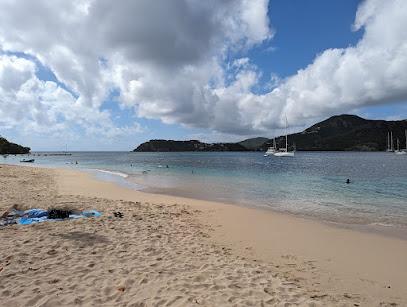
The Blockhouse
Explore Antigua's colonial past at The Blockhouse in Piccadilly. Discover historic fortifications and panoramic views on this captivating historical site.
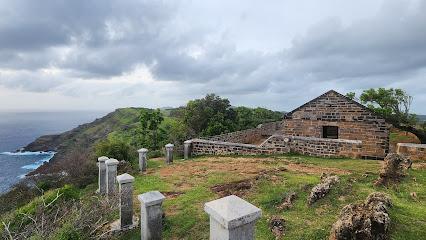
Dickenson Bay Beach
Experience Antigua's best: Dickenson Bay offers white sands, turquoise waters, vibrant beach life, and thrilling water sports in a Caribbean paradise.
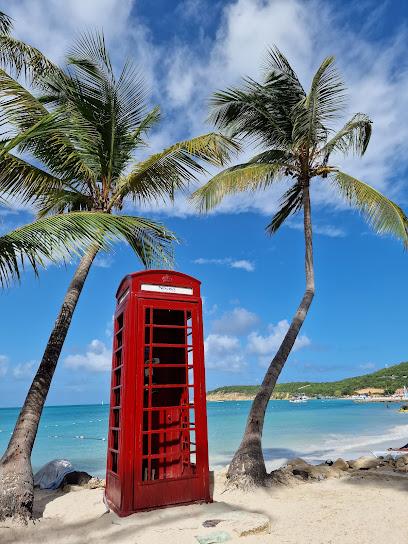
Long Bay Beach
Escape to Long Bay Beach in Antigua: Calm turquoise waters, soft white sands, and serene relaxation await in this Caribbean paradise.
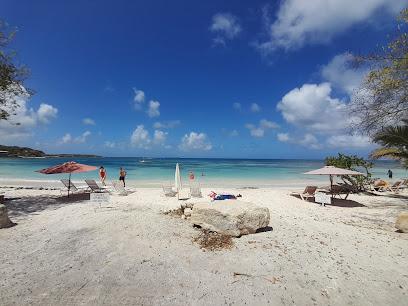
Dickenson Bay Beach
Experience Antigua's coastal charm at Dickenson Bay: white sands, turquoise waters, water sports, and stunning sunsets await!
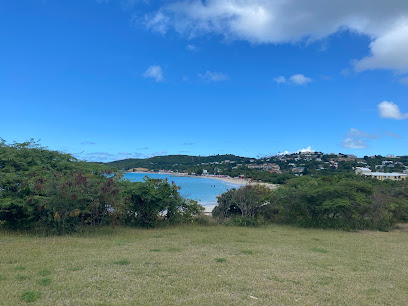
Museum Of Antigua & Barbuda
Explore Antigua & Barbuda's vibrant past at this St. John's museum, housed in the island's oldest building. Discover artifacts & cultural treasures!
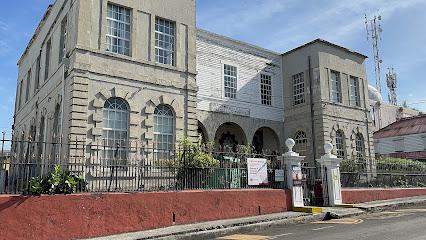
Dow's Hill Interpretation Centre
Discover Antigua's history with panoramic views at Dow's Hill Interpretation Centre, nestled in Nelson's Dockyard National Park.
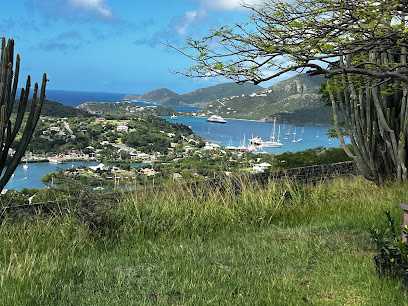
Betty's Hope Historic Sugar Plantation
Discover Antigua's colonial past at Betty's Hope, the island's first sugar plantation, featuring historic ruins and informative exhibits.
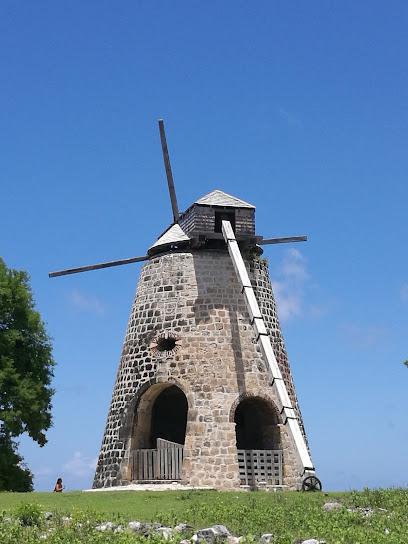
Saint John's Cathedral
Discover St. John's Cathedral: A historic landmark showcasing Antigua's resilience and architectural heritage in the heart of the capital.
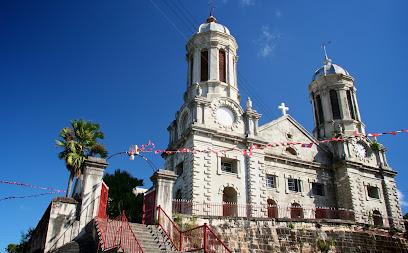
Essential places to dine
Al Porto
Experience authentic Italian cuisine at Al Porto in Jolly Harbour - where every meal is a celebration of flavor against stunning waterfront views.
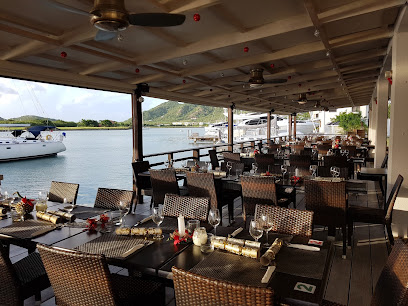
Ana's On The Beach
Experience exquisite Caribbean cuisine and signature cocktails at Ana's On The Beach, where stunning views meet vibrant flavors in Antigua.
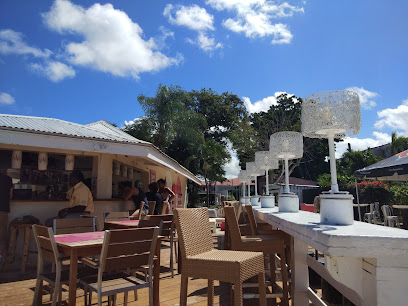
Sheer Rocks
Discover Sheer Rocks: A luxurious dining experience with breathtaking ocean views and exquisite tapas in St. Johns.
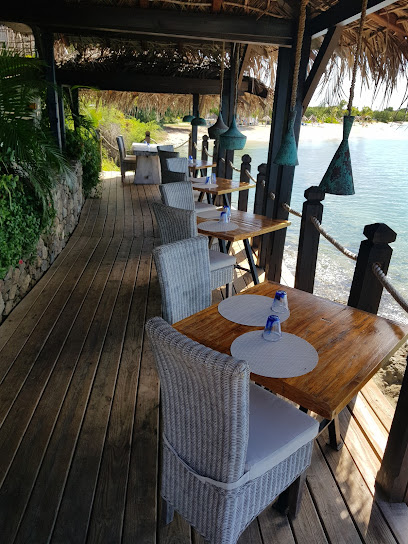
Bay House Restaurant & Bar
Experience delightful family-friendly dining at Bay House Restaurant & Bar in Antigua, where local flavors meet warm hospitality.
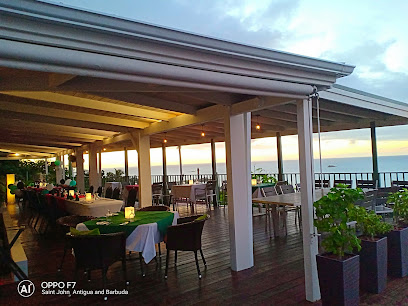
The Nest -Beach Bar, Antigua
Experience tropical bliss at The Nest - Beach Bar in Antigua, where delicious grilled cuisine meets stunning ocean views.
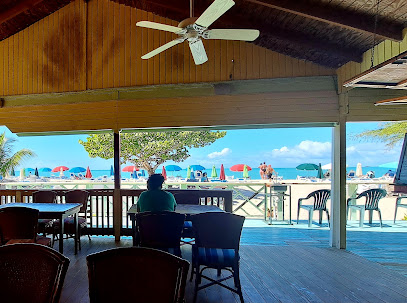
Cutie's
Experience vibrant Antiguan cuisine at Cutie's in Redcliffe Quay - where every dish tells a story.
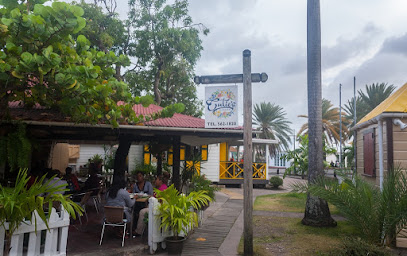
Ffryes Beach Bar/ Dennis Restaurant
Experience authentic Caribbean cuisine at Ffryes Beach Bar with stunning ocean views and a laid-back atmosphere perfect for relaxation.
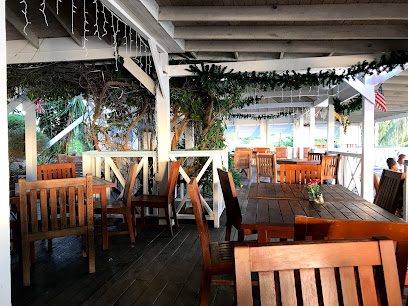
OJ's Beach Bar and Restaurant
Discover OJ's Beach Bar and Restaurant in Urlings for a taste of authentic Caribbean cuisine with stunning ocean views.
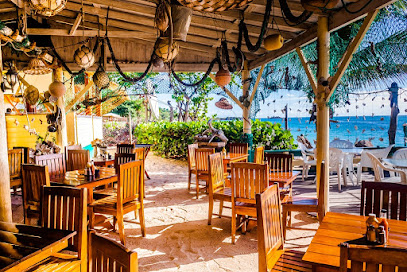
Darkwood Beach Bar and Restaurant
Discover exquisite Caribbean cuisine at Darkwood Beach Bar & Restaurant, where ocean views meet delightful flavors for an unforgettable dining experience.
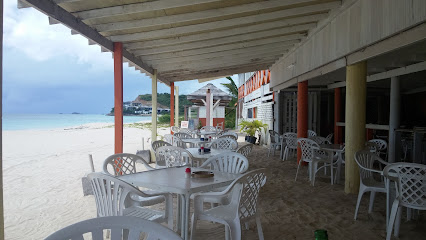
Turner's Beach
Discover Turner's Beach: A beautiful blend of sun-soaked sands and delectable dining experiences in St. John's.
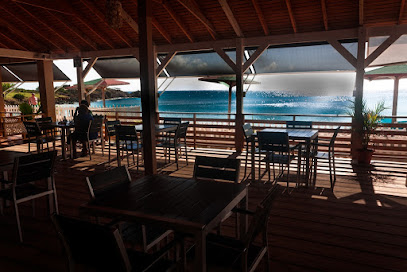
Miracles of the Caribbean Restaurant and Bar
Experience authentic Caribbean cuisine at Miracles of the Caribbean Restaurant and Bar in Bolands - where every dish tells a story.
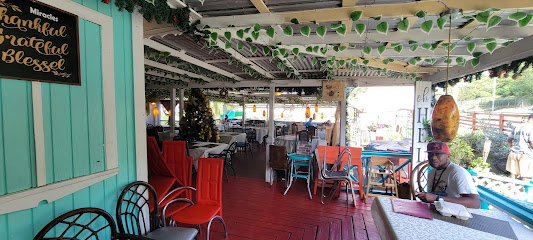
Cheers Antigua
Discover authentic Caribbean flavors at Cheers Antigua - where every meal is a celebration of taste and hospitality.
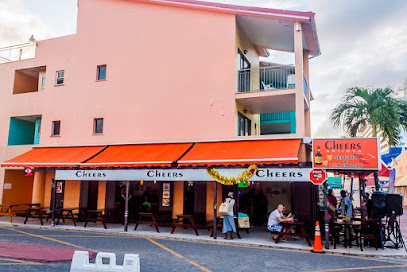
Boom Restaurant
Discover the flavors of the Caribbean at Boom Restaurant in English Harbour – where stunning views meet delicious cuisine.
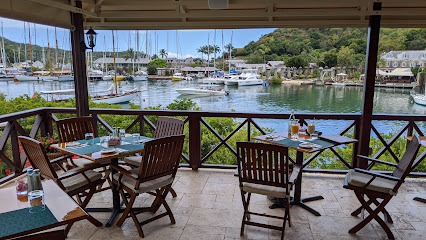
Aunty Cavell's Restaurant
Discover authentic Caribbean flavors at Aunty Cavell's Restaurant in Urlings—where every meal tells a story.
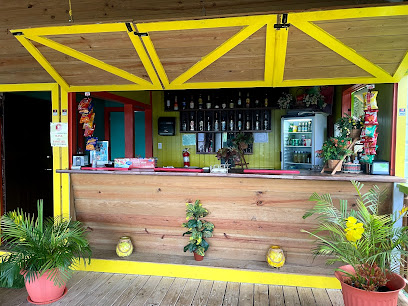
The Fox House Bar & Restaurant
Discover the flavors of Antigua at The Fox House Bar & Restaurant – where local ingredients meet international cuisine in a cozy atmosphere.
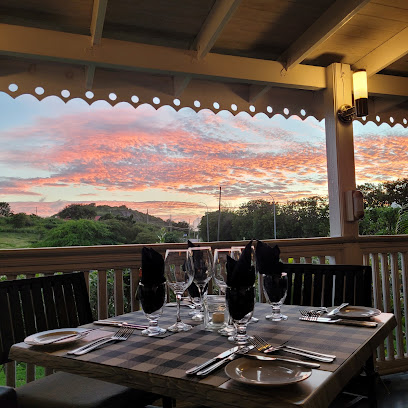
Markets, malls and hidden boutiques
Epicurean Fine Foods & Pharmacy
Discover the finest selection of local and international foods at Epicurean Fine Foods & Pharmacy in Jolly Harbour, Antigua.
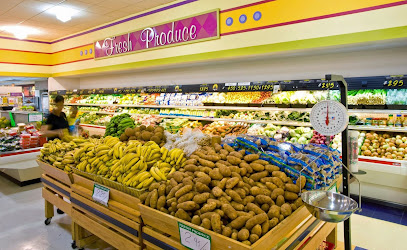
Shoul's Toys, Gifts & Housewares
Explore a delightful selection of toys, gifts, and housewares at Shoul's in St. John's, where local culture meets excellent customer service.
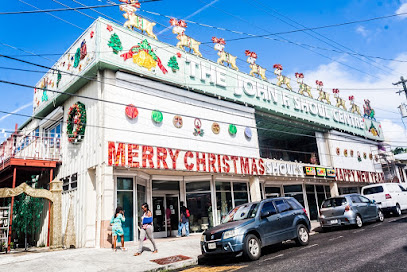
VM'S Aunt Mem's Supermarket
Experience local flavors and vibrant culture at VM'S Aunt Mem's Supermarket in Bolands, a must-visit for tourists seeking culinary delights.
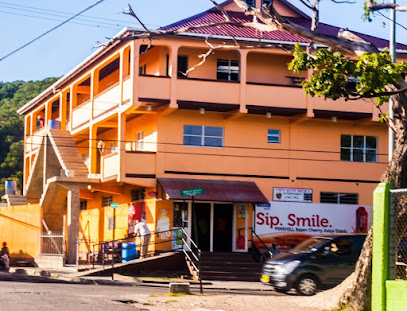
Vendor's Mall
Explore the vibrant Vendor's Mall in St John's for a unique shopping experience filled with local crafts, culinary delights, and rich Antiguan culture.
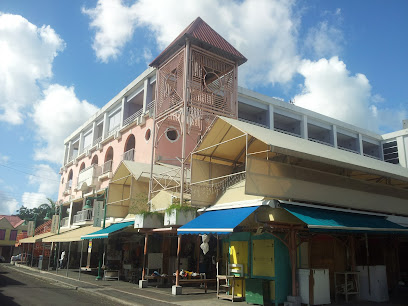
Zemi Art Gallery
Explore the vibrant creativity of the Caribbean at Zemi Art Gallery, a must-visit gift shop in St. John's offering unique handmade treasures.
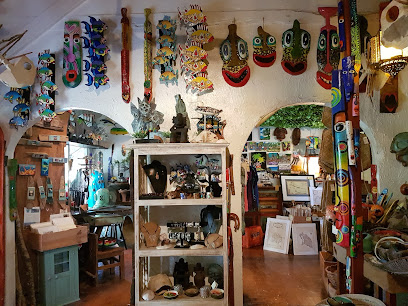
306 Antigua
Explore 306 Antigua for unique home goods and gifts that capture the vibrant spirit of Antiguan culture in the heart of St. John's.
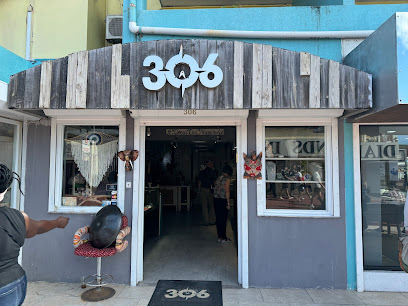
Exotic Antigua
Discover the vibrant styles of Exotic Antigua, a unique clothing store in St. John's that encapsulates the spirit of the Caribbean with every piece.
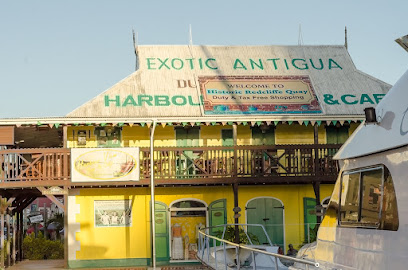
The Posh Pirate Antique Store
Uncover unique antiques and collectibles at The Posh Pirate Antique Store, a gem in Liberta offering a delightful shopping experience.
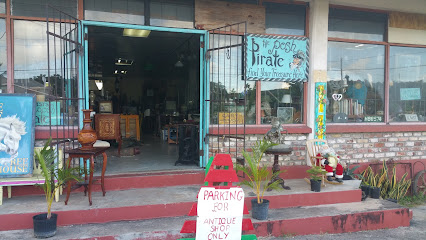
BOSSY MINI MART
Explore the vibrant flavors of Antigua at BOSSY MINI MART, your convenient grocery store for local delights and everyday essentials.

Sea Island Trading Antigua
Explore Sea Island Trading Antigua for authentic local crafts and home decor that reflect the island's rich culture and artistry.
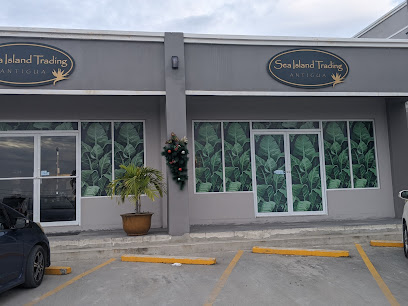
WINOUTS SHOP
Discover local flavors and essentials at Winouts Shop, Jennings' premier grocery store for tourists and residents alike.

Home
Explore vibrant fashion at Home Clothing Store in Extension - a local gem for stylish apparel and unique designs.
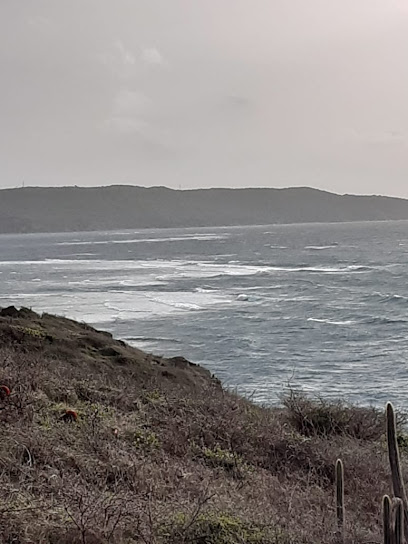
Britt Shop Aeropuerto Antigua
Explore a unique blend of Antiguan gifts, chocolates, and souvenirs at Britt Shop Aeropuerto Antigua, the perfect stop before you leave the island.
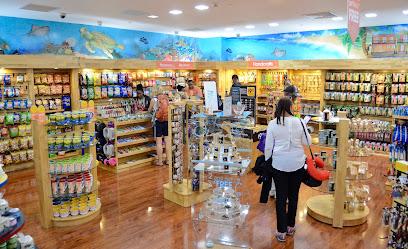
Bold Fashion Boutique
Explore Bold Fashion Boutique in English Harbour for a diverse selection of clothing, accessories, and unique local designs that elevate your travel experience.
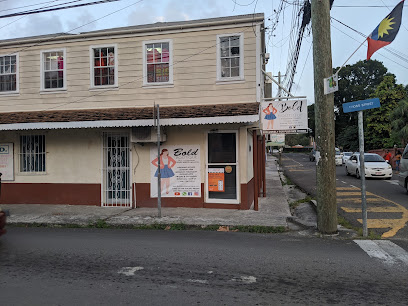
Photofantasy Antigua
Explore the vibrant local culture at Photofantasy Antigua, a charming gift shop offering unique souvenirs and handcrafted treasures from the heart of the Caribbean.

Essential bars & hidden hideouts
The Nest -Beach Bar, Antigua
Discover the serene beauty of The Nest - Beach Bar in Bolands, Antigua, where great food meets stunning ocean views in a tropical paradise.
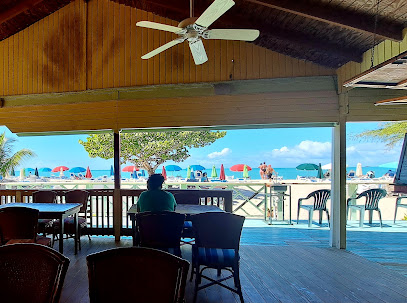
Sandra’s Beach Shop Bar and Grill
Experience the vibrant atmosphere of Sandra’s Beach Shop Bar and Grill, where delicious local cuisine meets stunning Caribbean views.
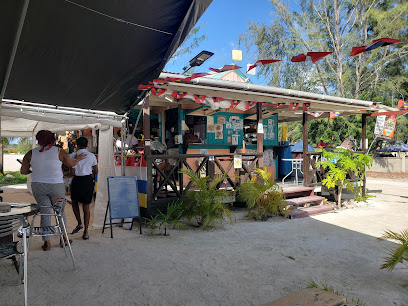
Garrot Blacks Bar & Lounge
Experience the vibrant nightlife at Garrot Blacks Bar & Lounge, where cocktails and Caribbean rhythms create unforgettable moments in English Harbour.
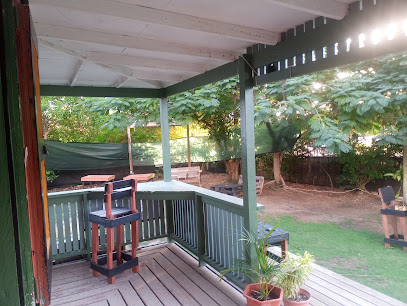
Pop up Beach Bar
Discover the Pop Up Beach Bar in Jolly Harbour - a tropical escape offering delicious food, refreshing drinks, and stunning ocean views.
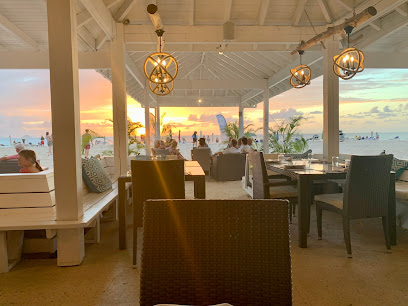
Morlene's Restaurant and Bar
Discover the authentic flavors and vibrant atmosphere of Morlene's Restaurant and Bar in Ebenezer, where every meal is a celebration of Caribbean cuisine.
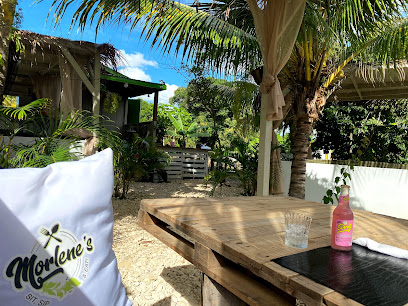
Jolly Beach
Discover the ultimate beach bar experience at Jolly Beach, where stunning views and tropical cocktails await in Antigua.
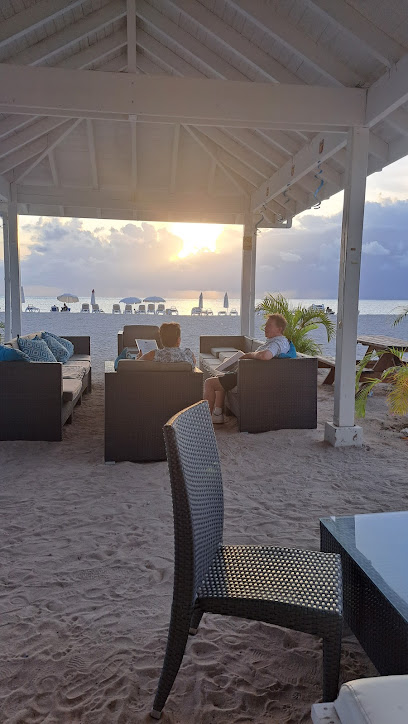
Bruce's Bar
Unwind at Bruce's Bar, a vibrant social hub on Gray's Farm Main Rd, offering delicious drinks, local flavors, and a lively atmosphere in Antigua.
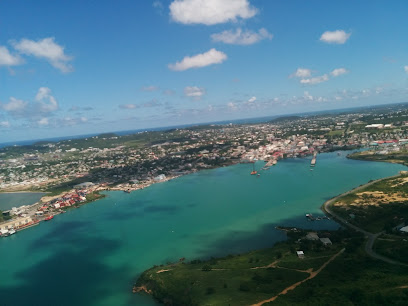
Hidden Secrets Bar
Unwind at Hidden Secrets Bar in Antigua – where vibrant nightlife meets local flavors in a cozy setting.
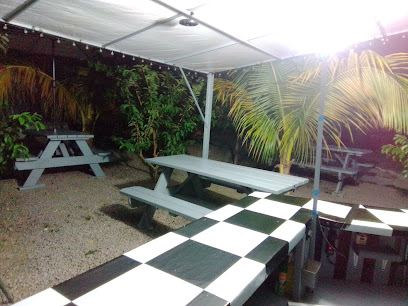
T. N. A SPORTS BAR & RESTURANT
Experience the vibrant atmosphere and delicious cuisine at T. N. A Sports Bar & Restaurant in Antigua, where every meal is a celebration!
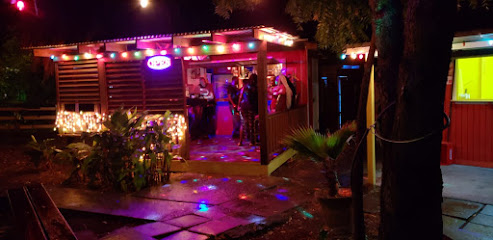
Kennedy's Classic Bar & Deli
Discover the vibrant flavors and welcoming atmosphere of Kennedy's Classic Bar & Deli in St. John's, Antigua, where locals and tourists unite.
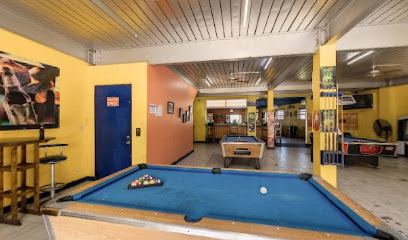
STREET LIVE BAR
Discover the vibrant nightlife at STREET LIVE BAR in St. John's, featuring live music, delicious cocktails, and a lively atmosphere that captures the spirit of the Caribbean.
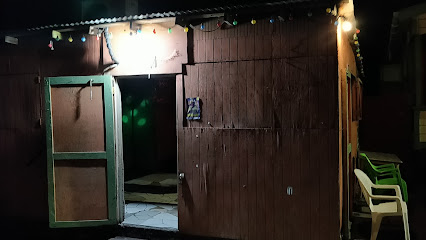
ODIZ BAR & GRILL
Discover the lively Odiz Bar & Grill in St. John's, where vibrant atmosphere meets delicious food and refreshing drinks for a perfect night out.
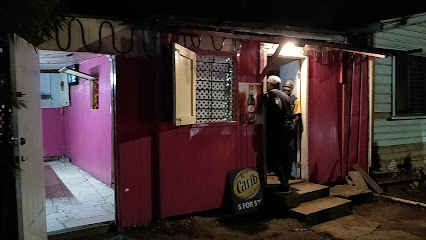
Rabbit Hole Karaoke
Experience vibrant nightlife at Rabbit Hole Karaoke, where delicious food meets unforgettable entertainment in the heart of Antigua.
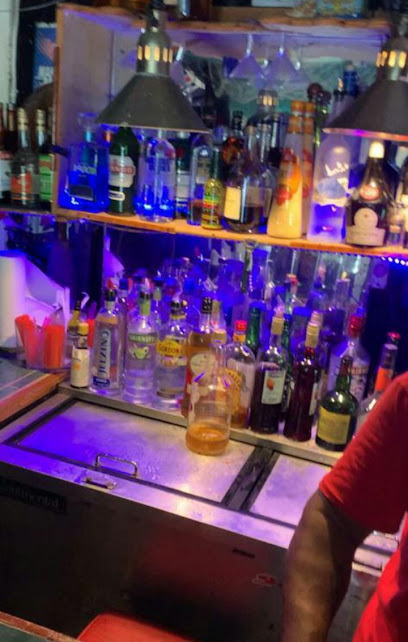
Kaikoconut - Floating Bar - Pick up
Discover Kaikonut, the floating bar in St. Mary's offering exquisite grilled dishes and breathtaking views in a unique Caribbean setting.
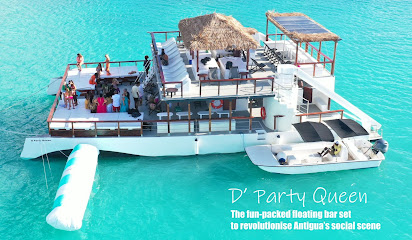
Local Phrases
-
- HelloWa gwaan
[wah gwaan] - GoodbyeLater
[lay-ter] - YesYeah man
[yah man] - NoNah man
[nah man] - Please/You're welcomePlease
[pleez] - Thank youTank yu
[tank yoo] - Excuse me/SorryBeg yu pardon
[beg yoo par-dun] - How are you?How yu stay?
[how yoo stay] - Fine. And you?Ahright. An yu?
[ah-rite. an yoo] - Do you speak English?Yu talk English?
[yoo talk ing-glish] - I don't understandMi nah get yu
[mee nah get yoo]
- HelloWa gwaan
-
- I'd like to see the menu, pleaseShow mi di menu deh, please
[show mee dee menu deh, please] - I don't eat meatMi nah eat meat
[mee nah eat meet] - Cheers!Cheers!
[cheers] - I would like to pay, pleaseMi would like fi pay, please
[mee wood like fee pay, please]
- I'd like to see the menu, pleaseShow mi di menu deh, please
-
- Help!Help!
[help] - Go away!Gweh!
[gway] - Call the Police!Call di Police!
[call dee Police] - Call a doctor!Call a docta!
[call ah docta] - I'm lostMi loss
[mee loss] - I'm illMi sick
[mee sick]
- Help!Help!
-
- I'd like to buy...Mi would like fi buy...
[mee wood like fee buy] - I'm just lookingMi jus a look
[mee just ah look] - How much is it?How much dat deh?
[how much dat deh] - That's too expensiveDat too dear
[dat too deer] - Can you lower the price?Yu could drop de price?
[yoo could drop dee price]
- I'd like to buy...Mi would like fi buy...
-
- What time is it?A wah time dis?
[ah wah time dis] - It's one o'clockA one o'clock
[ah one o'clock] - Half past (10)Haaf ten
[haff ten] - MorningMahnin
[mahn-in] - AfternoonAftanoon
[af-ta-noon] - EveningIvinin
[i-vi-nin] - YesterdayYessideh
[yess-ee-deh] - TodayTudeh
[too-deh] - TomorrowTomarruh
[tom-ah-ruh] - 1One
[wun] - 2Two
[too] - 3Tree
[tree] - 4Fo'
[foh] - 5Fahv
[fahv] - 6Six
[siks] - 7Seven
[sev-en] - 8Eight
[ayt] - 9Nine
[nine] - 10Ten
[ten]
- What time is it?A wah time dis?
-
- Where's a/the...?Weh di...
[weh dee] - What's the address?Wah di address deh?
[wah dee address deh] - Can you show me (on the map)?Yu cyaan show mi (pan di map)?
[yoo cyan show mee (pan dee map)] - When's the next (bus)?When di nex (bus)?
[when dee neks (bus)] - A ticket (to ....)A ticket (to ....)
[ah ticket (to)]
- Where's a/the...?Weh di...
History of Bolands
-
Before European colonization, the area now known as Bolands was inhabited by the Arawak and Carib people. These indigenous groups thrived on the island, relying on fishing, hunting, and agriculture. The lush landscape provided an abundance of resources, and the coastal location offered easy access to the sea for navigation and trade.
-
During the 17th century, Antigua and Barbuda became a focal point for European colonization. The island of Antigua, including the Bolands area, was claimed by the British in 1632. The fertile land was well-suited for sugar cane plantations, which soon became the cornerstone of the local economy. British settlers established sugar estates in Bolands, relying heavily on enslaved African labor.
-
The 18th and early 19th centuries marked the peak of the sugar industry in Bolands. Large plantations, such as the Jolly Harbour Estate, dominated the landscape. The labor-intensive process of sugar production brought significant wealth to the plantation owners, but it also entrenched a brutal system of slavery. The remnants of these sugar estates, including windmills and plantation houses, can still be found in the area.
-
The abolition of slavery in 1834 was a pivotal moment in Bolands' history. Freed slaves began to establish their own communities, and many turned to subsistence farming and fishing to sustain themselves. The transition was challenging, but it laid the groundwork for a more diversified local economy. The village of Bolands grew as a community of freed individuals, and it became a hub for local trade and culture.
-
In the 20th century, Bolands saw significant changes with the development of tourism as a major economic driver. The construction of resorts and marinas, particularly around Jolly Harbour, transformed the area into a popular destination for visitors. This shift brought new opportunities and challenges, as the local community adapted to the influx of tourists and the demands of the hospitality industry.
-
Despite modern developments, Bolands retains a rich cultural heritage. Traditions such as Carnival and local festivals celebrate the community's history, music, and dance. The local cuisine, influenced by African, British, and indigenous flavors, is a testament to the area's diverse past. Historical sites, such as the remains of sugar plantations and colonial-era buildings, offer a glimpse into Bolands' storied history.
Bolands Essentials
-
Bolands is located on the southwestern coast of Antigua, one of the two major islands that make up Antigua and Barbuda. The nearest international airport is V.C. Bird International Airport (ANU) in St. John's, approximately 17 kilometers away. From the airport, you can take a taxi directly to Bolands, which typically takes around 25-30 minutes. Alternatively, you can rent a car from the airport for more flexibility in your travels.
-
Bolands is a relatively small area, and many of its attractions are within walking distance. Local taxis are readily available and can be hailed on the street or booked through your accommodation. Car rentals are a popular option for those looking to explore the island at their own pace. Public buses also operate within Bolands and connect to other parts of Antigua, offering an affordable way to get around.
-
The official currency of Antigua and Barbuda is the Eastern Caribbean Dollar (XCD). US dollars are widely accepted, and many businesses will display prices in both currencies. Major credit cards are accepted in most hotels, restaurants, and larger shops. However, it is advisable to carry some cash for smaller establishments and local markets. ATMs are available in Bolands for cash withdrawals.
-
Bolands is generally a safe destination for tourists. However, it is always wise to take standard precautions. Avoid walking alone at night in unfamiliar areas and keep your belongings secure, especially in crowded places. While Bolands does not have specific high-crime areas targeting tourists, staying vigilant and aware of your surroundings is always recommended.
-
In case of emergency, dial 911 for immediate assistance. The local police station and medical facilities are available in the area. It is highly recommended to have travel insurance that covers medical emergencies. For minor health issues, there are pharmacies in Bolands where you can purchase over-the-counter medications.
-
Fashion: Do dress casually and comfortably, but also modestly. Swimwear should be reserved for beaches and pools. Religion: Do respect local customs and traditions, particularly when visiting religious sites. Public Transport: Do be courteous and respectful to fellow passengers. Don't eat or drink on public transport. Greetings: Do greet people with a friendly 'hello' or 'good morning/afternoon'. Eating & Drinking: Do try local dishes and accept food offerings graciously. Don't refuse hospitality, as it is considered impolite.
-
To experience Bolands like a local, visit the local markets where you can buy fresh produce and traditional Antiguan goods. Engage with the locals, who are often friendly and willing to share stories about the area’s history and culture. Don't miss the opportunity to enjoy a meal at a local eatery to taste authentic Antiguan cuisine. For a unique experience, consider attending a local event or festival to immerse yourself in the vibrant culture of the island.
Trending Landmark in Bolands
-
Heritage Quay Complex
-
Nelson's Dockyard
-
Redcliffe Quay
-
Shirley Heights Lookout
-
Devil's Bridge National Park
-
Al Porto
-
Sheer Rocks
-
The Nest -Beach Bar, Antigua
-
VC Bird Monument
-
Museum of Antigua and Barbuda
-
Dow's Hill Interpretation Centre
-
Darkwood Beach Bar and Restaurant
-
Fort James
-
Miracles of the Caribbean Restaurant and Bar
-
Betty's Hope Historic Sugar Plantation
Nearby Cities to Bolands
-
Things To Do in Jolly Harbour
-
Things To Do in St. John's
-
Things To Do in All Saints
-
Things To Do in Liberta
-
Things To Do in Falmouth
-
Things To Do in Dickenson Bay
-
Things To Do in English Harbour
-
Things To Do in Freetown
-
Things To Do in Codrington
-
Things To Do in Woodlands
-
Things To Do in Gingerland
-
Things To Do in Newcastle
-
Things To Do in Cotton Ground
-
Things To Do in Charlestown
-
Things To Do in Basseterre









